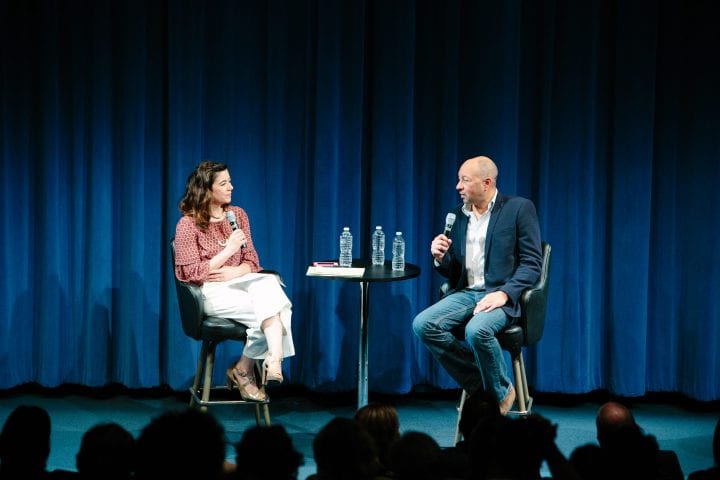
Introductions: Carl Phillips
May 4, 2017
On Tuesday, May 2nd at McCaw Hall, cerebral poet of the flesh, Carl Phillips, read us a stunning array of poems old and new. SAL Associate Director Rebecca Hoogs introduced and interviewed Carl for this event, which brought SAL’s 2016/17 Poetry Series to a beautiful, breathless close.
By Rebecca Hoogs, SAL Associate Director
It is an immense pleasure to introduce Carl Phillips. The author of 13 books of poetry, two books of prose, and one translation, he has, for the last 25 years or so, steadily, quietly become one of the most lauded and interesting poets of his generation. He is the winner of the prestigious Kingsley Tufts Award and, for several years, he has been the judge of the Yale Younger Series of Poets, helping to shape the next generation of poets you’ll see on this stage.
Dan Chiasson, writing in The New Yorker in 2013, declared him a “candidate for the author of the most interesting contemporary English sentences.” And Lisa Russ Spaar, praised his most recent book, Reconnaissance, in the Los Angeles Review of Books, saying “No contemporary poetry quite seduces like the work of the inimitable Carl Phillips, whose intimate lyric poems of pursuit, surrender, patience, ardor, restraint, beauty, loss, and suffering are inseparable from what, for lack of a better word, might be called his “designs,” his “style” — subtle, nuanced, shifting negotiations of syntax, silence, and musing — all of which can leave a reader breathless, envious, grateful.”
His writing is quiet, interior—we often begin seemingly mid-thought, mid-debate with the self, or a you, or an imagined you. Phillips studied Greek and Latin in college, and his poetry has something in common with the inflected nature of those languages—the way the subject is squirmy until the end of the sentence. His poems interrupt, are ruptured; dashed yet hopeful; they never give up on the promise of logic and meaning the sentence offers. His work delays, it desires, it tug-of-wars. It is sore with eros. Yes, it is sometimes about sex, and yes, it is sometimes about the flimsy scrim between two opposites, two dichotomous selves or ideas trying to what? Be kind to each other? Make meaning? Make knowledge? Only the poems know—or don’t. Only the poems un-know.
In his work of prose, The Art of Daring: Risk, Restlessness, Imagination, Phillips asks “Who can say which is better, the glory of the foliage, or the truth of what’s left when the leaves fall away?” He doesn’t answer that question. Or does he? I’m reminded of Rilke’s headless yet cerebral “Archaic Torso of Apollo” who commands, at the end of the poem, “You must change your life.” Done and done and doing, Phillips’s poems reply, chiseled as marble, half head, half heart, but never ever half-hearted.